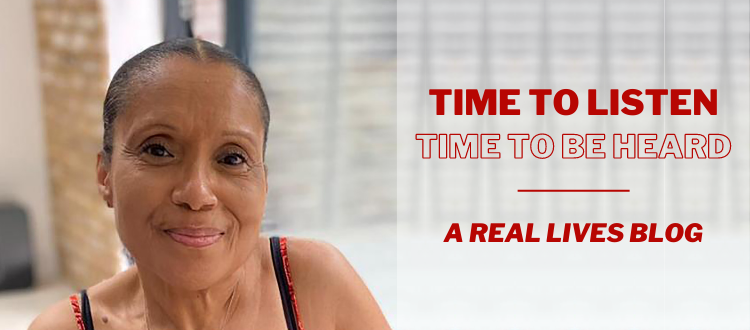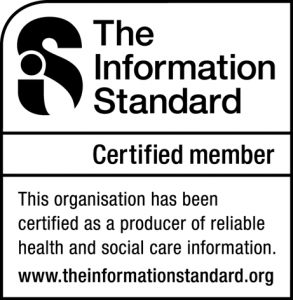Time to Listen – Time to be Heard
IT IS TIME TO LISTEN, IT IS TIME TO BE HEARD
This must be one of the most difficult pieces I have had to write in a long time.
I am fifty-seven years old and have come so very far from that skinny sickly-looking child who grew up experiencing a life of constant horrific pain.
When I was a child I felt that health professionals especially the nursing staff were amazing. They knew exactly what I needed and how to take care of me, they made me feel safe and comfortable. Little did I realise that this would change as I approached teenage hood.
First and foremost, before anything else if a patient is in a crisis please do not allow them to wait, beg or convince you that they need pain relieve. It is so important that pain is taking seriously because it is the worse pain ever. A patient screams out because the scream is the only way of expressing the agony, distress and torture that a crisis causes.
Some patients may not know how to express themselves when they are in need, frustration and anger can sometimes take control when they themselves have no control of this attack on their body. Remember we are all individuals we are all different and sometimes a patients anger and frustration are seen as rudeness and a lack of respect.
We need to understand that a patient who comes from a loving family, has amazing close friends who supports and understands them 100%, cannot be compared to a patient that has no one or little support.
We need to learn to listen… I mean really listen… not listen and dismiss or listen but not hear but listen to the patient.
I wonder if some health professionals/nurses feel inadequate or undermined because a patient is telling them what they need or what doesn’t work for them because they have the knowledge due to their experiences.
Please understand that we know our bodies so well, we were born with this chronic illness and are living with this chronic illness. We know the procedure, we know what our bodies can handle, what our bodies like, dislike and what our bodies need.
Please learn to listen, to hear what a patient is saying and to at least act on it in a positive manner before dismissing that patient.
As I grew up as a teenager with sickle cell anemia I found it difficult to speak up, I lacked confidence and didn’t think I would be heard or listened to. I didn’t really understand my body or my illness I felt that I was definitely not in control.
As I entered my 20’s and 30’s and I started regular exchange transfusions, I started to take more and more notice of my treatment the things that worked for me and the things that didn’t. I often had to speak up but I was never rude when I wasn’t heard.
I have shed tears because I haven’t been listened to and endured pain and trauma that was unnecessary. This has recently happened to me in my fifty’s which was a total shock.
“Please sedate me when you put that femoral line in my groin” my sentence was ignored by an anesthetist even after explaining my history. In October 2019 while undergoing an exchange transfusion the week before my hip replacement surgery a femoral line had to be inserted in my groin.
This was the only way I could receive my exchange transfusion as 30+ years of blood exchanges had ruined my veins. I could see that he did not like being told and felt he knew better, I could feel his body language saying ‘I know what I am doing, I don’t need to be told it will be fine.’
The pain that I felt from that needle trying to penetrate through hard scar tissue became evident by those screams echoing throughout the hospital theatre and corridors.
I was quickly sedated before receiving an apology and a look of regret from a flustered anesthetist. He should have listened, I wasn’t telling him how to do his job I was just letting him know what my body needed because of my knowledge through my past experiences.
Thank God this did not cause serious damaged, however it caused me to go through a procedure that was so distressing and could have easily been avoided if I was only listened to.
Remember I am fifty-seven years old so I wasn’t looked at as a child, a teenager or someone in their 20’s who maybe didn’t know what they were talking about or may have been exaggerating. Yet I was still ignored. We as Sickle Cell Sufferers need to stop being ignored no matter what age we are we need to be listened to and need to be taken seriously.
Educating everyone about Sickle Cell Anemia and the affect it can have on a person should be compulsory for all Health professionals, teachers, nursery staff etc., as well as The Metropolitan Police. Sickle Cell Anemia, its basic treatment and how it can affect the sufferer both physically and mentally should be part of all professional training that allow the individual dealing directly with people.
What is the point of educating health professionals who lack empathy or do not have the ability to listen. This has to be a major part of educating our medical staff and nurses. WE NEED TO LEARN TO LISTEN TO THE PATIENT AS WELL AS THE CARERS.
Perhaps this is the time that we the patients need to get involved in helping to give talks within all training and educational establishments so that experiences are listened to first hand from the patient.
Laurel
You can find Laurel on Instagram @laurelbrumant
This blog is part of the Real Lives blog series, sharing the real stories of people living with sickle cell. Read more here: www.sicklecellsociety.org/category/real-lives-blog/
This blog is also a part of our World Sickle Cell Day content. Find out more here: www.sicklecellsociety.org/wscd/





